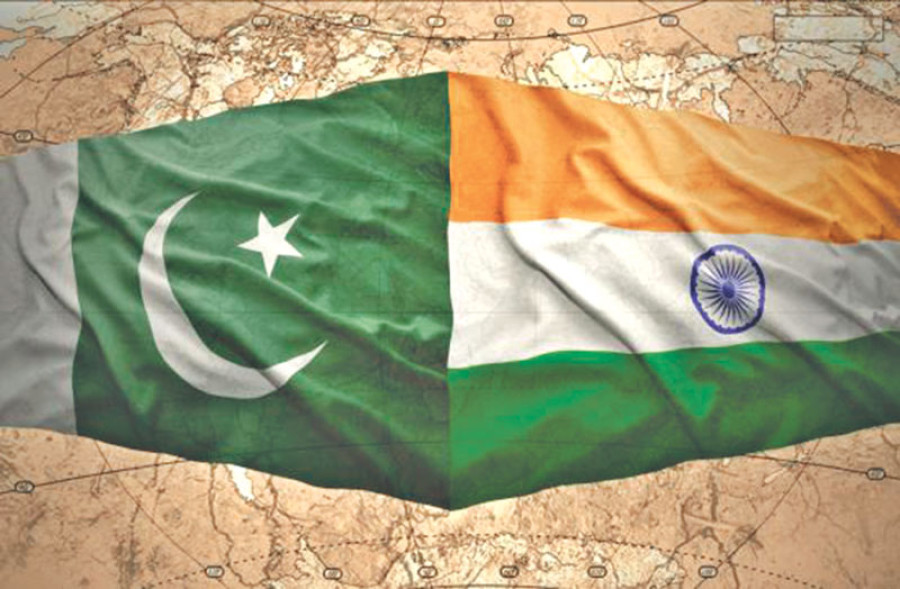Opinion
Unreal dream
Perhaps it’s time to form a new regional cooperation group among the smaller countries in South Asia
Shyam Kc
When the South Asian Association for Regional Cooperation (Saarc) formally came into existence in Dhaka in December 1985, many thought that it was an unreal dream that had miraculously come true. Ardent supporters, including me, of regional cooperation were made to visualise the bright prospects brought about by the birth of the South Asian grouping—there were vast and unimagined opportunities for interaction, social and economic cooperation, including the proper and just development of water resources for the benefit of all the countries and the peoples of the region.
In the latter part of the 1970s, in his address to a meeting of the Colombo Plan consultative committee in Nepal, the late king Birendra put forward the proposal for regional cooperation for sharing Nepal’s water resources. Bangladeshi President Ziaur Rahman pursued the concept despite the reluctance of two virtual superpowers of the region—India and Pakistan. Later in the 1980s, Bangladesh under President Ershad advocated the regional body followed by a series of official and ministerial meetings which finally led to the creation of Saarc. It was, and still is, in the economic and security interests of the small countries of South Asia to form such a union. (Whatever others may think, my view is that the initial South Asian Regional Cooperation (SARC)—which later became Saarc—was the brainchild of king Birendra.)
Plaything of the mighty
It has been over 30 years since the creation of Saarc but, for one reason or the other, only 18 Saarc summits have been held during this period despite the Saarc Charter specifically stipulating that a summit should be held each year. For the first four years, the summits were held regularly, but in 1989 it was not held and this started the series of breaks that continue to this day. It might be interesting to note that the UN General Assembly is held every year in September regardless of whether a head of a certain country is able to attend it or not. But the Saarc Charter mentions, for reasons unknown, that if a country cannot attend the summit, it will be postponed.
The regional body originally consisted of seven countries—Nepal, Bangladesh, Bhutan, India, the Maldives, Pakistan and Sri Lanka. But politics above and beyond regional cooperation began entering when a member country advocated the inclusion of Afghanistan, a Central Asian country, in the grouping. It was an attempt to balance the same proposal made by another country for China. But while Afghanistan became a Saarc member, China only attained the status of an observer. Many may think otherwise, but I feel these developments were the undoing of the main purpose of Saarc, which today is nothing more than a plaything of the high and the mighty.
A point of departure
Recent events in the South Asian subcontinent show that the big powers always have sway over their smaller neighbours and explain why groupings such as Saarc prove to be an anathema to them. Saarc, in its own small way, had paved the way for some sort of cooperation and friendship among the peoples of the member countries. Though tall sounding themes like economic cooperation and free trade still remain a distant dream, the cooperation among the people in the field of the arts is indeed commendable and is a way towards greater cooperation in other fields.
But with a power-driven and dominating mindset of some countries, prospects for change for the betterment of the region is dim. Once there was the ECC or the European Economic Community, which later donned the European Union cap. It might be useful to note just how big or small the countries that constitute the European Union are. They were almost of the same size and the populations of the original countries were not all that different. The economies of the countries were not too different either, even though the economic strength of Germany outweighed that of the others. With more countries joining the European grouping, differences over the economies of new members have arisen.
There are just five permanent members in the UN Security Council (SC): China, the US, the UK, Russia and France. And all of them have nuclear weapons and economic power but mainly they possess the power of veto at the UNSC. The big powers dominate the small ones in the UN. (Our Prime Minister visited India recently and is said to have pledged support for India’s permanent UNSC membership without obtaining similar pledge for permanent SC membership for the landlocked and island countries. There are 44 landlocked countries in the world and a large number of small, underdeveloped sea-locked countries. Surely this geographically disadvantaged group deserves a permanent seat at the UNSC.)
The existence of Saarc has been questionable for the past decade or so. Recent events that led to the cancellation of the scheduled summit have only brought to the fore the almost irreconcilable differences that prevail in the region. Maybe the time has come to forget about Saarc and forge a new regional cooperation group among the small countries, free of the domination of India and Pakistan. But such as a scenario is almost impossible to achieve; it is an unreal dream but still a dream worth having.




 15.12°C Kathmandu
15.12°C Kathmandu










